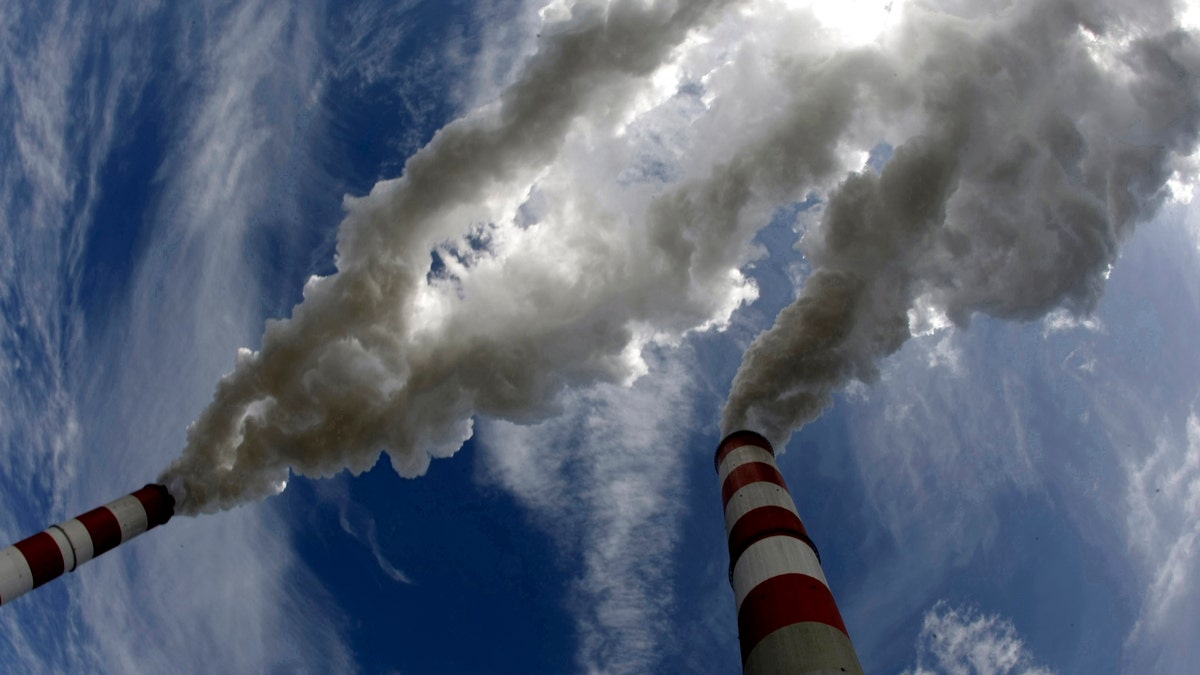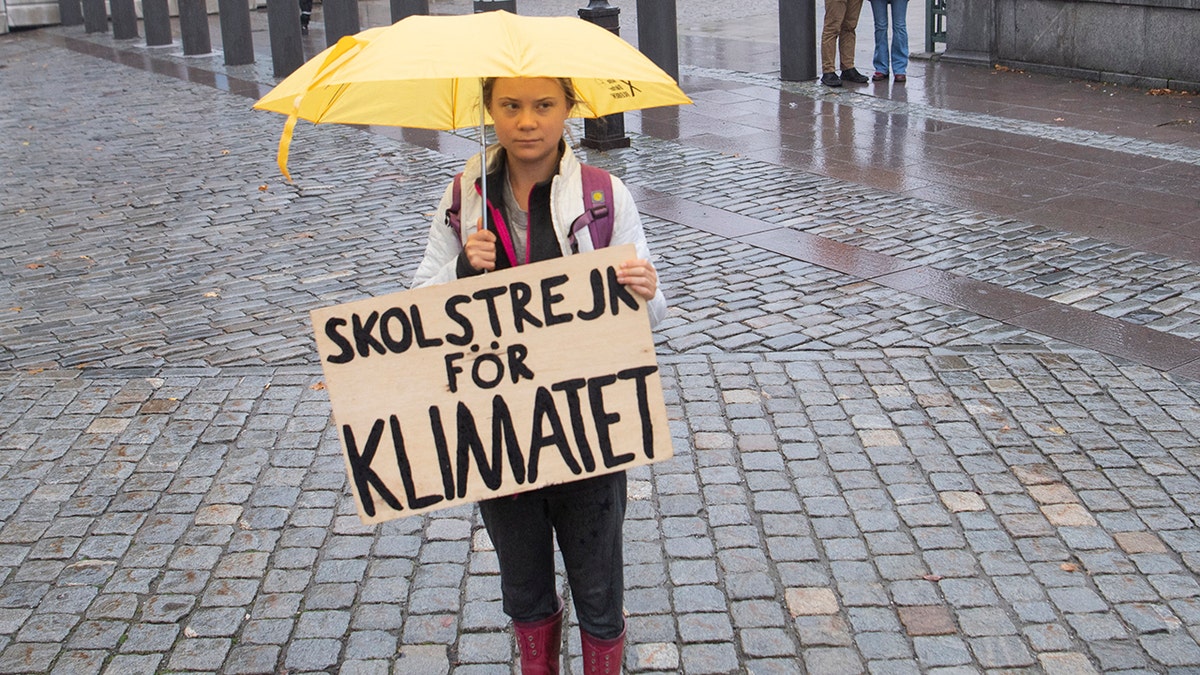'The Five' slams Democrats using tornado to push climate change
'The Five' panel discusses how Democrats are 'hellbent' on pushing climate change agenda
A study published in a peer-reviewed academic journal suggests that "authoritarianism" could be necessary to fight against climate change.
The study, published in Cambridge University’s American Political Science Review and first reported by the Foundation For Economic Education, leads with a question of "is authoritarian power ever legitimate?" before the author outlines how it could be when combating climate change.

FILE - In this Feb. 6, 2020 file photo, demonstrators protest against a cap-and-trade bill aimed at stemming global warming protest at the Oregon State Capitol in Salem. (AP Photo/Andrew Selsky)
"While, under normal conditions, maintaining democracy and rights is typically compatible with guaranteeing safety, in emergency situations, conflicts between these two aspects of legitimacy can and often do arise," assistant professor of political theory at the Pontifical Catholic University of Chile Ross Mittiga writes in the study’s abstract. "A salient example of this is the COVID-19 pandemic, during which severe limitations on free movement and association have become legitimate techniques of government. Climate change poses an even graver threat to public safety. Consequently, I argue, legitimacy may require a similarly authoritarian approach."
The abstract concludes, "While unsettling, this suggests the political importance of climate action. For if we wish to avoid legitimating authoritarian power, we must act to prevent crises from arising that can only be resolved by such means."

Smoke bellows from the chimneys of Belchatow Power Station, Europe's largest biggest coal-fired power plant. (REUTERS/Peter Andrews/Files)
AUSTIN'S DEFUNDED POLICE NO LONGER HAVE THE STAFF TO MONITOR SEX OFFENDERS
The study states that it is "ultimately an empirical question whether authoritarian governance is better able to realize desired environmental outcomes and, if so, why and to what extent."
The study drew criticism on Twitter, most notably from Alexander Wuttke, political psychology professor at the University of Mannheim, who called the study "disturbing."
"In my reading, it explicitly argues that we must put climate action over democracy and adopt authoritarian governance if democracies fail to act on climate change," Wuttke tweeted.
CLICK HERE TO GET THE FOX NEWS APP
Mittiga responded to the criticism with a lengthy Twitter thread writing that his paper is "meant to be a warning about the threats climate change poses to democratic governance and human rights."

TOPSHOT - Swedish climate activist Greta Thunberg stands with an umbrella as she protests with her placard reading "School strike for climate" (Photo by FREDRIK SANDBERG/TT News Agency/AFP via Getty Images)
"In other words, I argue that we should all be advocating for rapid and extensive climate action, *precisely for the sake of preserving democracy and human rights*, which face their biggest threats in the context of security emergencies, like climate change," Mittiga adds.
Mittiga did not immediately respond to a request for comment from Fox News.





